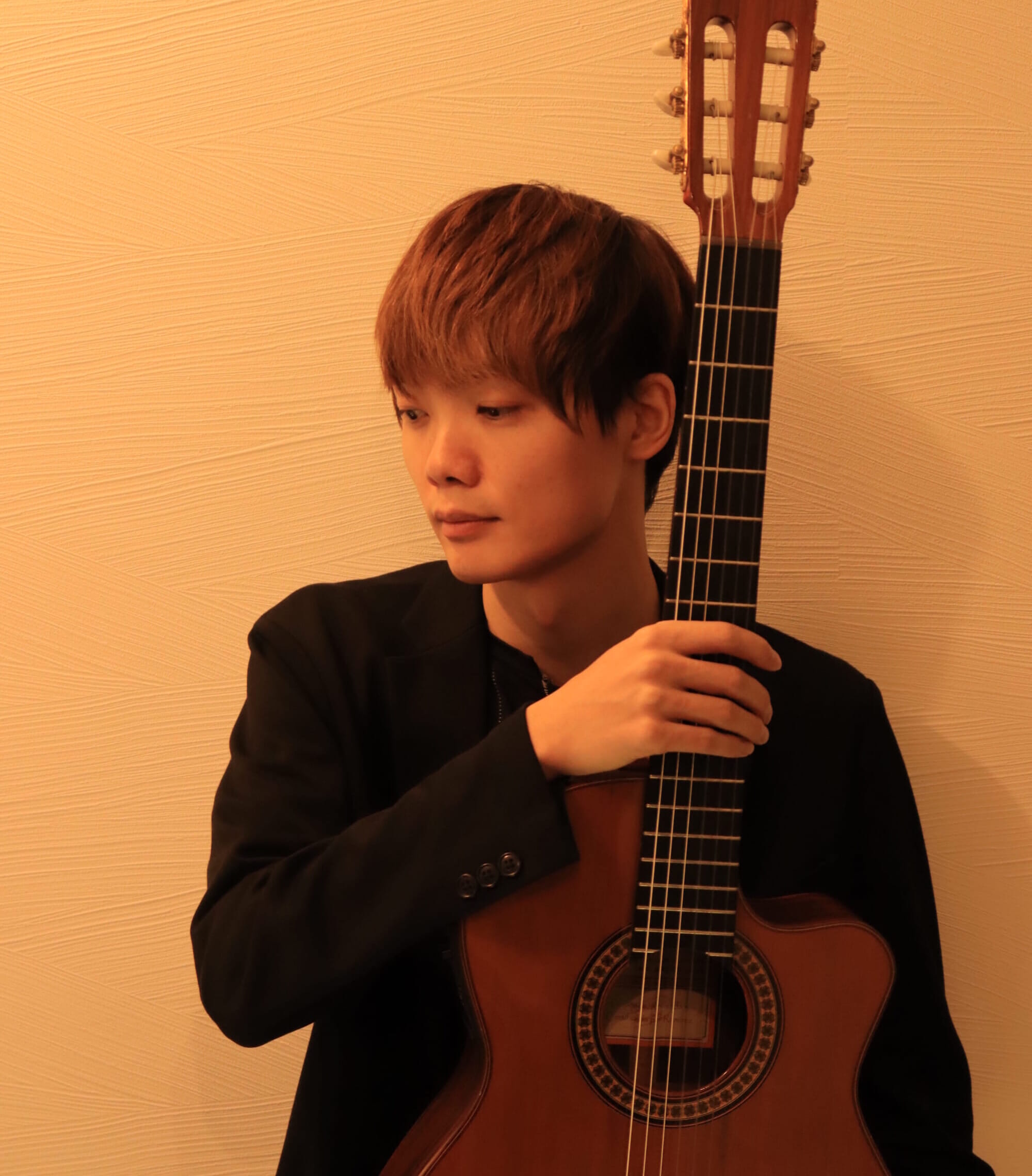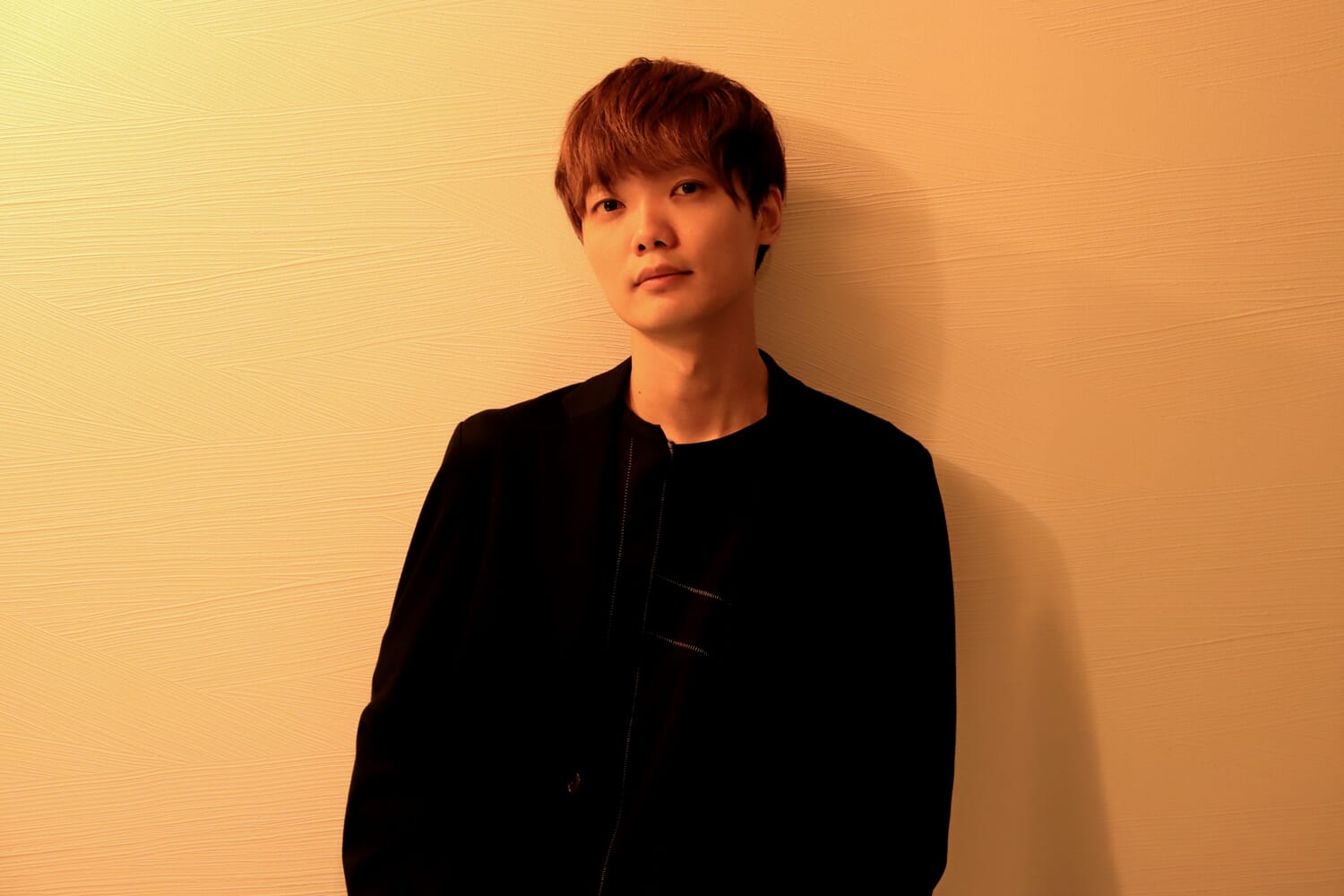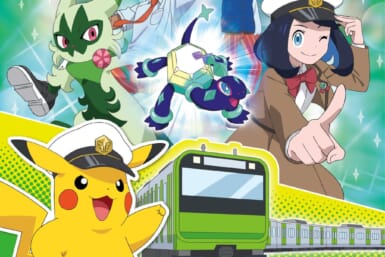Hiroaki Tsutsumi is no stranger to hard work. A resident composer at Tokyo-based music production and music management studio Miracle Bus, he has worked on the soundtracks of over 30 different anime series, films and video games, including the wildly popular Jujutsu Kaisen Season 1, Tokyo Revengers and the original video animation of hit-show Alice in Borderland. Yet, despite his obvious prolificity and success, there’s an ease to the composer. His warmth and openness elicit a quick familiarity when speaking to him.
Roots in Rock
During his teenage years, Tsutsumi recalls the rampant popularity of guitar-led music, particularly among his friends at his junior high school baseball club. Japanese rock bands such as Glay (stylized in all caps), Luna Sea and X Japan were all the rage, and it was as a result of his interest in this kind of music that Tsutsumi first uncovered not only his natural capacity as a guitarist, but moreover his desire to become a musician. You can still hear echoes of this musical era in his work today. There’s an audible sonic overlap between his own compositions and this style of 1980s Japanese rock, a fact that Tsutsumi himself acknowledges. “That style of music is certainly ingrained in me,” he laughs.
After first picking up a guitar at age 14, Tsutsumi went on to win a guitar competition sponsored by Guitar Magazine only three years later. It was this acknowledgment of his talent that gave him the confidence to study music full-time at the Kunitachi College of Music. During his time at university, he was encouraged to begin composing by friend and future collaborator Masaru Yokohama. It was a decision that set him on his path today. Tsutsumi speaks fondly of their working relationship, describing Yokoyama’s ability to introduce “something new in every song,” as something he particularly admires in his friend, as well as Yokoyama’s relentless motivation. Together, the pair have worked on a number of successful projects, including Hyperdimension Neptunia: The Animation (2013) and Seven Mortal Sins (2017).
Not Just a Guitarist
Tsutsumi started his career as a guitarist, and confesses that his guitar collection, which has been growing since his junior high days, is now up to 30.
“Recently, though, I’ve been getting more and more interested in classical music,” he says. Although he’s never had the opportunity to study classical music formally, about which he admits a slight personal complex, Tsutsumi articulates his recent joy in delving more concertedly into the classical world. When I ask him what composers and styles he’s found particularly inspiring, he mentions Ravel’s piano compositions, Bach’s writing for the organ, and other orchestral pieces. “When I find a piece of music I like,” he explains, “I like to create orchestral samples that I can incorporate into my own work.”

An expansion and interest beyond guitar-based compositions is evidenced throughout Tsutsumi’s body of work. In the Tokyo Revengers soundtrack, for instance, “Hinata’s Theme” is written primarily for violin and piano. It’s a lilting melody that adeptly reflects its eponymous subject. Tsutsumi speaks about his experience composing for other instruments, explaining how this was very much something he learned “on the job.”
“You have to get to grips with how different instruments are tuned, and the ways in which phrasing differs according to the instrument,” he says, describing this as being “a steep, but rewarding, learning curve.”
Tsutsumi recalls how initially he was applying rock techniques to other instruments, but quickly began to nurture his sense of other instruments as individual entities. He expresses, for example, the enjoyment he finds when using the violin. Though also a stringed instrument, it’s distinct in its timbre and tonality. With his orchestral arsenal more fully developed, Tsutsumi’s now able to use different instruments in accordance with what he imagines best reflects and expresses the character for which he is composing.
Battling Battle Scenes
Not only a hard worker, but a fast one, Tsutsumi can usually finish pieces within a mere five hours. With shorter works, he sometimes requires only one or two. “Battle songs are usually the most difficult,” he explains, reflecting on the challenge of balancing the exhilaration and “flashiness” of these action-packed moments with melodies and turns of phrases that capture the mood of the characters at play.
In this vein, he cites “Come, Kuromukuro!” from Kuromukuro as one of the more difficult pieces that he’s had to write. To listen to the piece, it’s easy to see why: capturing a pivotal moment in the anime’s story, the music is broadly orchestrated, and guides its listeners through tender moments of the violin counterpart, to the triumphant roar of horns, a full orchestra and ritualistic chanting. The music alone tells a dynamic, layered story.
An anime fan himself, Tsutsumi fondly remembers watching shows like Dragon Ball every Wednesday at 7 p.m. with his family. He speaks about the importance of understanding the characters for whom you are composing. “The more I understand the feelings of the characters, the more I can reflect these feelings in the music,” he explains. Although he hadn’t previously been a fan, he recalls that as soon as he was appointed the composer of Jujutsu Kaisen, he dutifully read the extant manga, stating the importance of grounding yourself within a new fictional world before embarking on fashioning its musical landscape.
A Note to Future Composers
With such a diverse collection of work already under his belt and no sign of stopping any time soon, Tsutsumi is an undoubtedly inspirational figure for many in the industry. He speaks of his own admiration, though, for composers such as Osaka-native Yuta Bandoh, known for the anime series Yuri on Ice, as well as orchestral works like “Fireworks, Concerto for Piano and Orchestra.” There’s a certain magic, Tsutsumi describes, in Bandoh’s ability to express such a great deal through even a few notes.
I ask Tsutsumi how he might advise those looking to follow a similar career trajectory. “Of course, musical training and experience are must-have for the job”, he says. “But nonmusical experience is similarly valuable. It’s important not only to be a rounded musician and composer, but a rounded person too.”
As he continues to experiment and develop his capacities beyond the guitar, the musical world of Hiroaki Tsutsumi is increasingly limitless. He’s not only a composer to admire, but one to watch too, as he continues to expand his musical and personal horizons.
More Info
Listen to all of Hiroaki Tsutsumi’s work on Spotify, and follow his Instagram at @hiroaki850605 to keep up to date with his latest projects.









